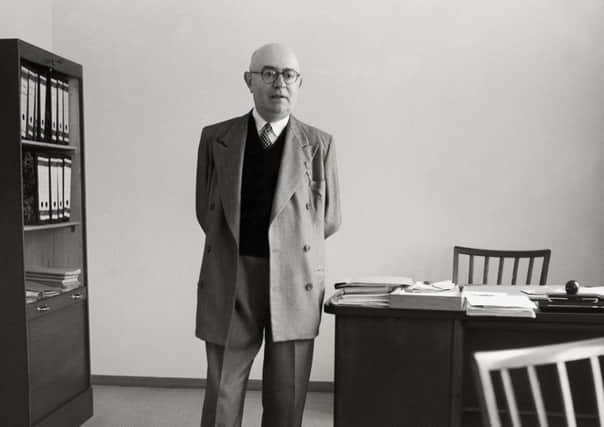Book review: Grand Hotel Abyss: The Lives of the Frankfurt School, by Stuart Jeffries


His key charge was that its principal members – Theodor Adorno, Max Horkheimer, Herbert Marcuse, Erich Fromm and their friend and mentor who was never actually a member, Walter Benjamin – had reneged on the key Marxist dictum that the point of philosophy was not to interpret the world but to change it. Uniting Marxism with the theories of Freud, the school emerged in an attempt to understand failure; specifically, why the German population did not turn to revolution in 1919 as the Russians did in 1917. Although he does not spell it out, Jeffries paints a picture almost of a sociological laboratory devoted to analysing failure. In its “second phase”, the school examined why the Germans had been seduced by Nazism. In exile in America during the war, they studied why the Americans were beguiled and placated by popular culture, and wondered if its form of capitalism was just a more subtle form of soul-deadening than National Socialism. When riots and strikes broke out in the late 1960s, they questioned the revolutionary efficacy of student sit-ins, while their protégées railed that “if Adorno is left in peace, then capitalism will never cease”. Undergraduate radicals bared their breasts at him and showered him with petals, while revelling in their self-description of
“left-wing fascists”.
They were a paradoxical and fundamentally tragic generation. Born mostly into wealthy families of assimilated Jews, they rebelled against the very conditions which gave them the material comfort to allow them to contemplate removing the system by which they had profited. Their scepticism towards capitalism would count for little when the State itself turned against their Jewishness, however secular they had become. Perhaps the most well-known quote to come out of the Frankfurt School is Adorno’s phrase from Culture Critique And Society in 1955 – “to write poetry after Auschwitz is barbaric”. These men truly had seen a revolution, and they shuddered from it. Perhaps more significant than that phrase – one which Adorno himself revised and reconsidered in Negative Dialectics in 1966 – was his later contention that it was a “categorical imperative” to ensure that the conditions that led to the gas chambers never happened again. This is more than mere assertion. By using the terminology of the philosopher Kant (whose thinking some in the Frankfurt School thought had contributed to Germany’s descent into Nazism), Adorno was being very specific. The “categorical imperative” is a moral law which is true at all times and in all places. There is no room for relativism.
Advertisement
Hide AdAdorno and Horkheimer especially became increasingly pessimistic, not just about politics and the zombifying culture industry, but about the role of reason itself. There is a wonderful German word coined by their successor Jürgen Habermas – Verblendungszusammenhang – meaning “total system of delusion”, and the elder generation seemed to cross that event-horizon. The revolution was impossible because every cerebral faculty, every emotion, every purchase, every song was now infected by late capitalism: as if one were to have contact lenses grafted on to one’s eyes. The exception was Marcuse, who embraced the hippy counter-culture of 1960s California: of all the Frankfurt School, his works, such as One-Dimensional Man and Eros And Civilization, now read as the most nostalgically naïve.
Jeffries has done a great service in producing such a readable, wry and detailed introduction to the thought of the various thinkers here presented. His epilogues look particularly at Habermas’s work, as he took on a position professionally within the Institute, though it seems to me a missed opportunity not to have compared the writers with their contemporary, Guy Debord, the Situationist who railed against the “Society of the Spectacle”. I would dearly love it if it inspired readers to go out and get copies of Philosophy Of Modern Music, To Have Or To Be?, The Arcades Project, Eclipse Of Reason or any other of their works, though I realise this is a vain hope. To read this alone would be the next best thing.
What, in the end, did the Frankfurt School achieve? At their door has been laid everything from identity politics to the European Union, political correctness to multiculturalism; to my mind, mostly by those who have not read the actual texts. The minutiae of Marxist theory can seem as esoteric as the theology of Aquinas.
But the Frankfurt School, to their credit, were interested in everything: Donald Duck could tell you as much about American politics as Ford’s factories, and Schubert was as important in understanding the
German psyche as Bismarck. Their lasting work was the idea of the inter-disciplinary, where politics, science, culture, history, psychology and philosophy were part of the same endeavour. They were, in their way, the last of the Renaissance Men.
Grand Hotel Abyss: The Lives Of The Frankfurt School, by Stuart Jeffries, Verso, £18.99